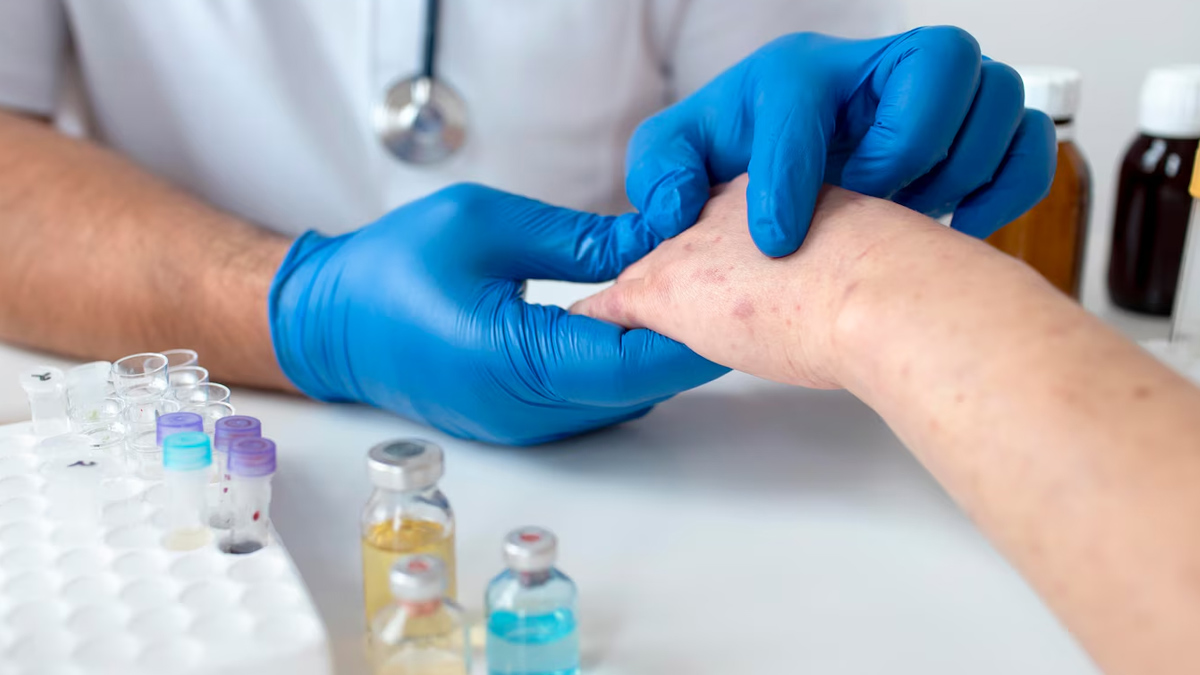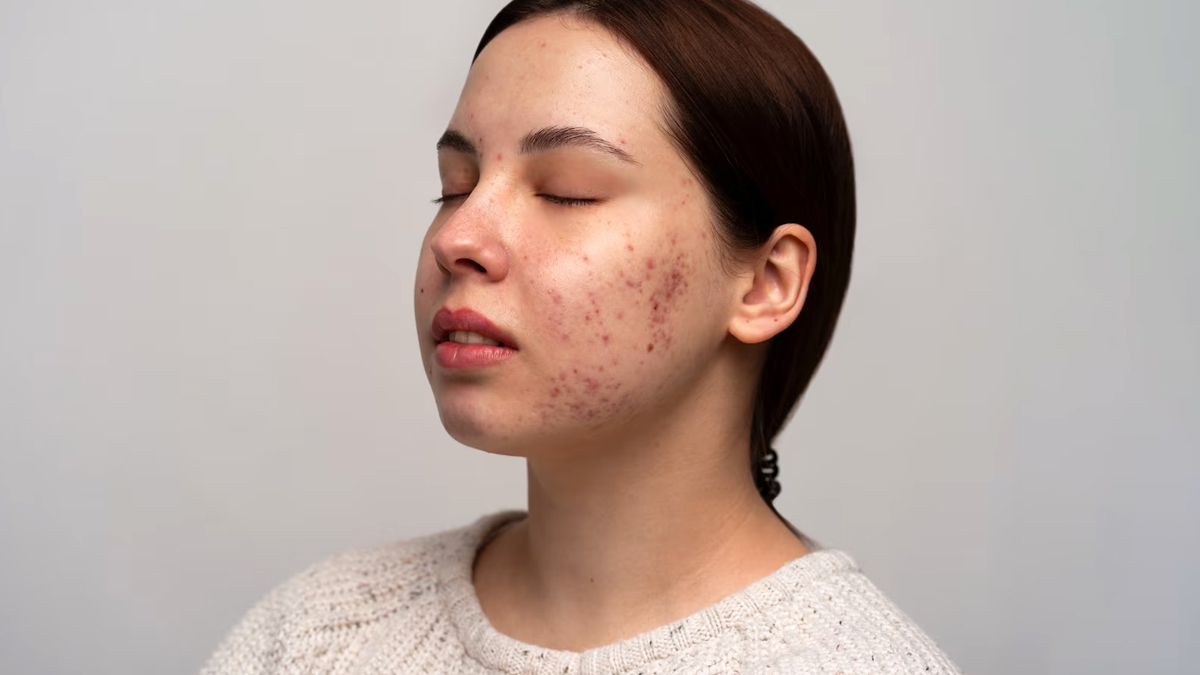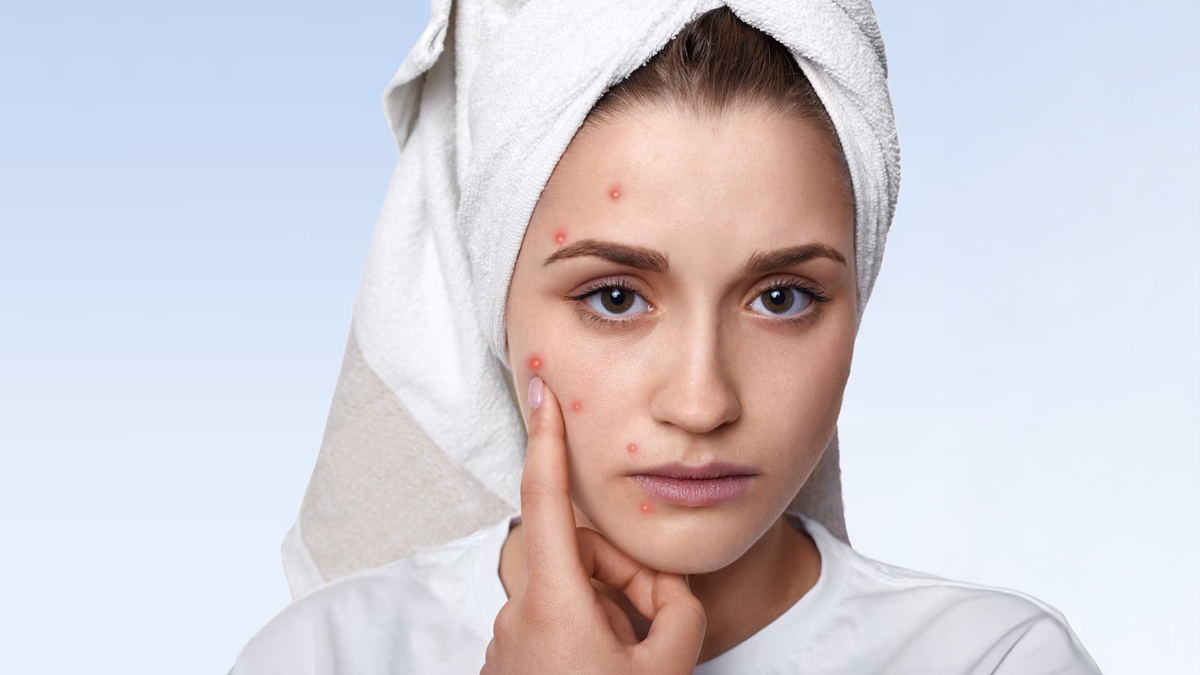
Acne is a common skin issue that can occur in anyone. It usually develops when tiny hair follicles in the skin become blocked, trapping all the dirt, leading to inflammation and the formation of pimples, whiteheads, and blackheads. This can be due to factors such as hormonal changes, excess sebum production due to some cosmetic products, certain medications, unhealthy diet, and more. But how do we exactly know what is causing our skin acne? A dermatologist explains the use of blood tests in detecting the underlying reason.
Table of Content:-
Also Read: Causes Of Acne In Women You Should Know For Better Management
How Does Blood Test Help Detect Acne Causes?

According to Dr Sanjib Chowdhury, Consultant Dermatologist, Fortis Hospital, Anandapur, certain blood test markers can help uncover the underlying causes of acne.
“High levels of testosterone, DHEA-S, and androgens can lead to excess oil production and clogged pores,” he explains. “Blood sugar tests—such as glucose and insulin—are also useful, as high sugar levels can increase inflammation and oiliness. Elevated CRP (C-reactive protein) levels indicate inflammation in the body, which may worsen acne. Thyroid hormones (TSH, T3, T4) can impact hormonal balance, while low levels of vitamin D and zinc can interfere with skin healing.”
It’s important to understand that hormonal fluctuations, particularly elevated androgens, can trigger breakouts. Conditions like Polycystic Ovary Syndrome (PCOS) are known to cause such imbalances. However, Dr Chowdhury adds that not everyone with severe acne has abnormal hormone levels; some individuals simply have skin that is more sensitive to even normal hormone levels, which can still result in acne.
A large study published in the Journal of the Endocrine Society suggests adult female acne can be a sign of hormone imbalance, particularly high androgen levels as seen in PCOS. Experts recommend measuring hormones like testosterone and DHEA-S in all women with acne. If hormone levels are high, combined oral contraceptives (estroprogestins) should be added to acne treatment regardless of severity.
Spironolactone may also help in moderate-to-severe cases that don't respond to usual therapies. Even women without hormonal imbalance may benefit from estroprogestins as a second-line treatment.
How Reliable Are Blood Tests In Diagnosing Acne-Related Issues?

Blood tests can help identify acne-related issues, such as hormone imbalances, inflammation, or vitamin deficiencies. However, some people with normal results still experience acne.
Doctors typically use blood tests along with physical exams and medical history to determine the full cause of acne and other related symptoms.
Also Read: Skincare 101: How to Make Your Own Anti-Bacterial Face Mist from Tulsi and Neem
When To Consider Blood Tests For Acne?

If you’re someone who frequently suffers from acne issues, here’s when you can consider getting blood tests:
- When your acne is severe or does not respond to standard treatments.
- If you have a history of hormonal problems like elevated levels of testosterone, low SHBG (sex hormone binding globulin), high DHEA-S (Dehydroepiandrosterone Sulfate), LH (Luteinising Hormone) & FSH (Follicle Stimulating Hormone) ratio 2:1 and even 3:1 in patients with polycystic ovaries, high prolactin levels are also associated.
- If you are being considered for certain medications like isotretinoin... The lipid profile & liver function test needs screening.
- To detect underlying nutrient deficiencies like vitamin D and vitamin B12.
- For known PCOS patients, insulin resistance & thyroid profile needs to be checked.
Conclusion
Blood tests can be a beneficial tool to identify hidden causes of persistent or severe acne, particularly when hormonal imbalances, inflammation, or nutritional deficiencies are involved. While not always necessary for every acne case, they can provide detailed insights when breakouts don’t respond to standard treatments or when conditions like PCOS are suspected. With a combination of blood tests, physical examination, and medical history, dermatologists can create a more effective treatment plan, leading to better skin health and long-term acne management.
Also watch this video
How we keep this article up to date:
We work with experts and keep a close eye on the latest in health and wellness. Whenever there is a new research or helpful information, we update our articles with accurate and useful advice.
Current Version